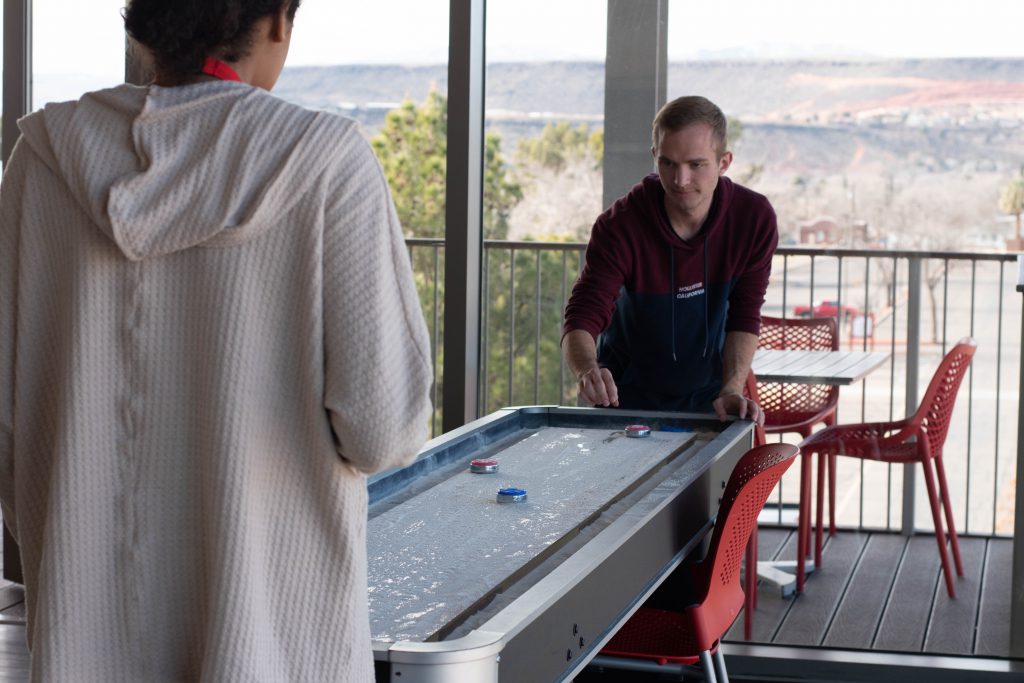I have not been out in public since March 12, when Dixie State University announced classes were to be moved to an online setting due to the novel coronavirus outbreak.
I have not eaten out at a restaurant or been inside a building that is not my own home. I have not had face-to-face communication with anyone outside of my family members. I have sat down with my partner and created an emergency contact list. I have placed four bottles of hand sanitizer around my room and four others around the rest of the house.
For the majority of you reading this, my actions could be interpreted as dramatic, intense or unnecessary. What you do not know, however, is that I am one of the ones at risk –– I am immunocompromised.
As someone with a lowered immune system, my daily routine is what is currently being advised by the Centers for Disease Control and Prevention: wash your hands, don’t touch your face, cough into your elbow and don’t go near those who are sick.
Now, the precautions I outlined above are what is recommended for survival. Without these measures, the contraction of COVID-19 is extremely likely and severe outcomes from the virus are a near guarantee.
Because of my heart transplant, every illness results in a battle between keeping my immune system low enough to keep my heart safe but high enough to fight off infections and viruses. In order to stop COVID-19, my heart would be at a higher risk of being attacked by my own body.
The problem lies with those who ignore the recommendations of the CDC, who believe the virus is less serious than what is being presented and who simply refuse to abstain from their public activities.
Unfortunately, these people have the backings of the president, who said on Feb. 27: “[COVID-19] is going to disappear. One day –– it’s like a miracle –– it will disappear.”
This has proven to be wildly inaccurate.
A COVID-19 study by the Imperial College COVID-19 Response Team explained that even with a mitigation strategy in place, which includes isolation, quarantine and social distancing, around 2 million Americans are predicted to die.
“It is better to be seen as dramatic, intense or unnecessary than a potential murderer.“
Abby Doman, DSN Staff
In Italy, citizens are on a total lockdown to protect individuals from COVID-19. Funeral services are prohibited, police are chasing families back into their homes and COVID-19 patients are being treated in hospital hallways due to overflow.
For the majority of you reading this, Italy’s actions could be interpreted as dramatic, intense or unnecessary.
For the majority of you reading this, you will be responsible for the potentially fatal ailments of grandmas, grandpas, children and those with underlying health problems.
The charge of murder may even be brought upon those who knowingly participate in public life with the virus.
You will not kill the 20-year-old track team member or the 30-year-old CEO. For the majority of you, COVID-19 will present as a bad flu.
People like me, however, are reliant on you to keep us alive. Please follow the advice and guidelines of the CDC and other reputable health organizations.
It is better to be seen as dramatic, intense or unnecessary than a potential murderer.



